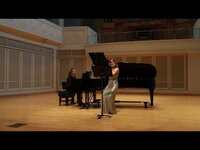Items
-
 Velocity Kenji Bunch
Velocity Kenji Bunch -
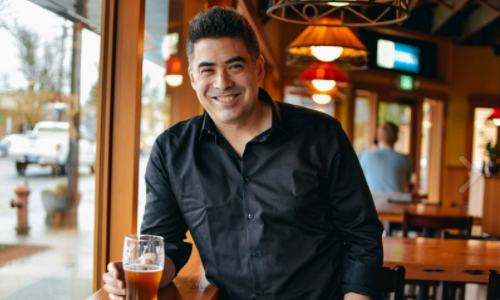 Kenji Bunch Kenji Bunch is one of America’s most engaging, influential, and prolific composers. Through an expansive blend of classical and vernacular styles, Bunch makes music that’s “clearly modern but deeply respectful of tradition and instantly enjoyable.” (The Washington Post) Deemed “emotional Americana,” (Oregon ArtsWatch) and infused with folk and roots influences, Bunch’s work has inspired a new genre classification: “Call it neo-American: casual on the outside, complex underneath, immediate and accessible to first-time listeners… Bunch’s music is shiningly original.” (The Oregonian) Hailed by The New York Times as “A Composer To Watch” and cited by Alex Ross in his seminal book The Rest Is Noise, Bunch’s wit, lyricism, unpredictability, and exquisite craftsmanship earn acclaim from audiences, performers, and critics alike. His interests in history, philosophy, and intergenerational and cross-cultural sharing of the arts reflect in his work. Varied style references in Bunch's writing mirror the diversity of global influence on American culture and reveal his deft ability to integrate bluegrass, hip hop, jazz, and funk idioms. Rich, tonal harmonies and drawn-out, satisfying builds characterize Bunch’s work and easily lend themselves to dance and film. Over sixty American orchestras have performed Bunch’s music, which “reache(s) into every section of the orchestra to create an intriguing mixture of sonic colors.” (NW Reverb) Recent works include commissions and premieres from the Seattle Symphony, the Oregon Symphony, the Lark Quartet, the Britt Festival, Music From Angel Fire, Chamber Music Northwest, the Eugene Ballet, and the Grant Park Music Festival. His extensive discography includes recordings on Sony/BMG, EMI Classics, Koch, RCA, and Naxos labels among others. Also an outstanding violist, Bunch was the first student ever to receive dual Bachelor and Master of Music degrees in viola and composition from The Juilliard School and was a founding member of the highly acclaimed ensembles Flux Quartet (1996-2002) and Ne(x)tworks (2003-2011). Bunch currently serves as Artistic Director of Fear No Music, and teaches viola, composition, and music theory at Portland State University, Reed College, and for the Portland Youth Philharmonic.
Kenji Bunch Kenji Bunch is one of America’s most engaging, influential, and prolific composers. Through an expansive blend of classical and vernacular styles, Bunch makes music that’s “clearly modern but deeply respectful of tradition and instantly enjoyable.” (The Washington Post) Deemed “emotional Americana,” (Oregon ArtsWatch) and infused with folk and roots influences, Bunch’s work has inspired a new genre classification: “Call it neo-American: casual on the outside, complex underneath, immediate and accessible to first-time listeners… Bunch’s music is shiningly original.” (The Oregonian) Hailed by The New York Times as “A Composer To Watch” and cited by Alex Ross in his seminal book The Rest Is Noise, Bunch’s wit, lyricism, unpredictability, and exquisite craftsmanship earn acclaim from audiences, performers, and critics alike. His interests in history, philosophy, and intergenerational and cross-cultural sharing of the arts reflect in his work. Varied style references in Bunch's writing mirror the diversity of global influence on American culture and reveal his deft ability to integrate bluegrass, hip hop, jazz, and funk idioms. Rich, tonal harmonies and drawn-out, satisfying builds characterize Bunch’s work and easily lend themselves to dance and film. Over sixty American orchestras have performed Bunch’s music, which “reache(s) into every section of the orchestra to create an intriguing mixture of sonic colors.” (NW Reverb) Recent works include commissions and premieres from the Seattle Symphony, the Oregon Symphony, the Lark Quartet, the Britt Festival, Music From Angel Fire, Chamber Music Northwest, the Eugene Ballet, and the Grant Park Music Festival. His extensive discography includes recordings on Sony/BMG, EMI Classics, Koch, RCA, and Naxos labels among others. Also an outstanding violist, Bunch was the first student ever to receive dual Bachelor and Master of Music degrees in viola and composition from The Juilliard School and was a founding member of the highly acclaimed ensembles Flux Quartet (1996-2002) and Ne(x)tworks (2003-2011). Bunch currently serves as Artistic Director of Fear No Music, and teaches viola, composition, and music theory at Portland State University, Reed College, and for the Portland Youth Philharmonic. -
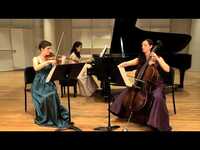 Tibetan Tunes Chen Yi
Tibetan Tunes Chen Yi -
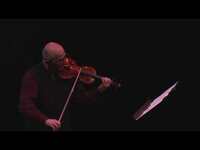 Suite Mestiza Gabriela Lena Frank
Suite Mestiza Gabriela Lena Frank -
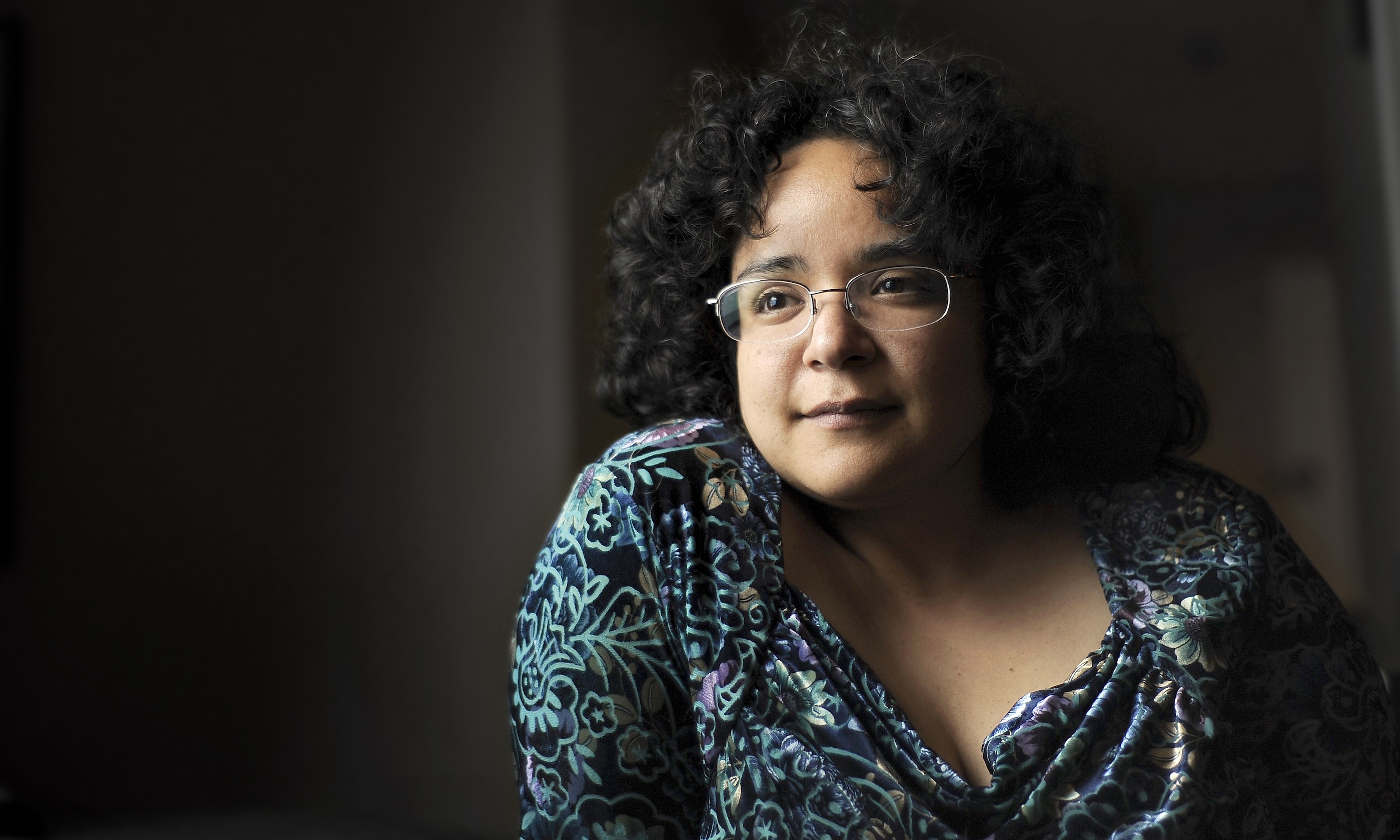 Gabriela Lena Frank Currently serving as Composer-in-Residence with the storied Philadelphia Orchestra and included in the Washington Post's list of the 35 most significant women composers in history (August, 2017), identity has always been at the center of composer/pianist Gabriela Lena Frank's music. Born in Berkeley, California (September, 1972), to a mother of mixed Peruvian/Chinese ancestry and a father of Lithuanian/Jewish descent, Gabriela explores her multicultural heritage through her compositions. Inspired by the works of Bela Bartók and Alberto Ginastera, Gabriela has traveled extensively throughout South America in creative exploration. Her music often reflects not only her own personal experience as a multi-racial Latina, but also refract her studies of Latin American cultures, incorporating poetry, mythology, and native musical styles into a western classical framework that is uniquely her own. Moreover, she writes, "There's usually a story line behind my music; a scenario or character." While the enjoyment of her works can be obtained solely from her music, the composer's program notes enhance the listener's experience, for they describe how a piano part mimics a marimba or pan-pipes, or how a movement is based on a particular type of folk song, where the singer is mockingly crying. Even a brief glance at her titles evokes specific imagery: Leyendas (Legends): An Andean Walkabout; La Llorona (The Crying Woman): Tone Poem for Viola and Orchestra; and Concertino Cusqueño (Concertino in the Cusco style). Gabriela's compositions also reflect her virtuosity as a pianist — when not composing, she is a sought-after performer, specializing in contemporary repertoire. In 2020, Gabriela was a recipient of the prestigious 25th anniversary Heinz Award in the Arts and Humanity category with an unrestricted cash prize of $250,000, a meaningful portion of which was donated by Gabriela to the Gabriela Lena Frank Creative Academy of Music. The award recognized Gabriela for breaking gender, disability, and cultural barriers in the classical music industry, and for her work as an activist on behalf of emerging composers of all demographics and aesthetics. Winner of a Latin Grammy and nominated for Grammys as both composer and pianist, Gabriela also holds a Guggenheim Fellowship and a USA Artist Fellowship given each year to fifty of the country’s finest artists. Her work has been described as “crafted with unself-conscious mastery” (Washington Post), “brilliantly effective” (New York Times), “a knockout” (Chicago Tribune) and “glorious” (Los Angeles Times). Gabriela is regularly commissioned by luminaries such as cellist Yo Yo Ma, soprano Dawn Upshaw, the King’s Singers, the Cuarteto Latinoamericano with guitarist Manuel Barrueco, Brooklyn Rider, and conductors Marin Alsop and Yannick Nézet-Séguin. She has also received orchestral commissions and performances from leading American orchestras including the Chicago Symphony, the Boston Symphony, the Atlanta Symphony, the Cleveland Orchestra, the Philadelphia Orchestra and the San Francisco Symphony. Before her current residency with the Philadelphia Orchestra for which she will compose the 45-minute Chronicles of the Picaflor (Hummingbird), in 2017 she completed her four-year tenure as composer-in-residence with the Detroit Symphony under maestro Leonard Slatkin, composing Walkabout: Concerto for Orchestra, as well as a second residency with the Houston Symphony under Andrés Orozco-Estrada for whom she composed the Conquest Requiem, a large-scale choral/orchestral work in Spanish, Latin, and Nahuatl, the language of the Aztecs. Gabriela’s most recent premieres have been Apu: Tone Poem for Orchestra commissioned by Carnegie Hall and premiered by the National Youth Orchestra of the United States under the baton of conductor Marin Alsop; and Suite Mestiza, a large-scale work for solo violin premiered by Movses Pogossian. In the season of 2022-23, San Diego Opera will premiere Gabriela’s first opera, The Last Dream of Frida, utilizing words by her frequent collaborator Pulitzer Prize winning playwright Nilo Cruz. In the 2018-19 school year, Gabriela also became visiting Artist-in-Residence at the Blair School of Music with Vanderbilt University, and currently serves as Composer-in-Residence at the Caines School of Music at Utah State University through 2024, adding to her long list of residencies at universities and conservatories through the US. Gabriela is the subject of several scholarly books including the W.W. Norton Anthology: The Musics of Latin America; Women of Influence in Contemporary Music: Nine American Composers (Scarecrow Press); and In her Own Words (University of Illinois Press). She is also the subject of several PBS documentaries including “Compadre Huashayo” regarding her work in Ecuador composing for the Orquestra de Instrumentos Andinos comprised of native highland instruments; and Música Mestiza, regarding a workshop she led at the University of Michigan composing for a virtuoso septet of a classical string quartet plus a trio of Andean panpipe players. Músic Mestiza, created by filmmaker Aric Hartvig, received an Emmy Nomination for best Documentary Feature in 2015. Civic outreach is an essential part of Gabriela’s work. She has volunteered extensively in hospitals and prisons, with her current focus on developing the music school program at Anderson Valley High School, a rural public school of modest means with a large Latino population in Boonville, CA. Gabriela is also a climate activist, co-authoring a regular column on climate action within the music industry for Chamber Music America Magazine and creating a Climate Commitment for GLFCAM. In 2017, Gabriela founded the award-winning Gabriela Lena Frank Creative Academy of Music whose history and mission can be found here. Gabriela attended Rice University in Houston, Texas, where she earned a B.A. (1994) and M.A. (1996). She studied composition with Sam Jones, and piano with Jeanne Kierman Fischer. At the University of Michigan, where she received a D.M.A. in composition in 2001, Gabriela studied with William Albright, William Bolcom, Leslie Bassett, and Michael Daugherty, and piano with Logan Skelton. She currently resides in Boonville, a small rural town in the Anderson Valley, with her husband Jeremy on their mountain farm, has a second home in her native Berkeley in the San Francisco Bay Area, and has traveled extensively in Andean South America. Gabriela is a member of G. Schirmer’s prestigious roster of artists, exclusively managed and published.
Gabriela Lena Frank Currently serving as Composer-in-Residence with the storied Philadelphia Orchestra and included in the Washington Post's list of the 35 most significant women composers in history (August, 2017), identity has always been at the center of composer/pianist Gabriela Lena Frank's music. Born in Berkeley, California (September, 1972), to a mother of mixed Peruvian/Chinese ancestry and a father of Lithuanian/Jewish descent, Gabriela explores her multicultural heritage through her compositions. Inspired by the works of Bela Bartók and Alberto Ginastera, Gabriela has traveled extensively throughout South America in creative exploration. Her music often reflects not only her own personal experience as a multi-racial Latina, but also refract her studies of Latin American cultures, incorporating poetry, mythology, and native musical styles into a western classical framework that is uniquely her own. Moreover, she writes, "There's usually a story line behind my music; a scenario or character." While the enjoyment of her works can be obtained solely from her music, the composer's program notes enhance the listener's experience, for they describe how a piano part mimics a marimba or pan-pipes, or how a movement is based on a particular type of folk song, where the singer is mockingly crying. Even a brief glance at her titles evokes specific imagery: Leyendas (Legends): An Andean Walkabout; La Llorona (The Crying Woman): Tone Poem for Viola and Orchestra; and Concertino Cusqueño (Concertino in the Cusco style). Gabriela's compositions also reflect her virtuosity as a pianist — when not composing, she is a sought-after performer, specializing in contemporary repertoire. In 2020, Gabriela was a recipient of the prestigious 25th anniversary Heinz Award in the Arts and Humanity category with an unrestricted cash prize of $250,000, a meaningful portion of which was donated by Gabriela to the Gabriela Lena Frank Creative Academy of Music. The award recognized Gabriela for breaking gender, disability, and cultural barriers in the classical music industry, and for her work as an activist on behalf of emerging composers of all demographics and aesthetics. Winner of a Latin Grammy and nominated for Grammys as both composer and pianist, Gabriela also holds a Guggenheim Fellowship and a USA Artist Fellowship given each year to fifty of the country’s finest artists. Her work has been described as “crafted with unself-conscious mastery” (Washington Post), “brilliantly effective” (New York Times), “a knockout” (Chicago Tribune) and “glorious” (Los Angeles Times). Gabriela is regularly commissioned by luminaries such as cellist Yo Yo Ma, soprano Dawn Upshaw, the King’s Singers, the Cuarteto Latinoamericano with guitarist Manuel Barrueco, Brooklyn Rider, and conductors Marin Alsop and Yannick Nézet-Séguin. She has also received orchestral commissions and performances from leading American orchestras including the Chicago Symphony, the Boston Symphony, the Atlanta Symphony, the Cleveland Orchestra, the Philadelphia Orchestra and the San Francisco Symphony. Before her current residency with the Philadelphia Orchestra for which she will compose the 45-minute Chronicles of the Picaflor (Hummingbird), in 2017 she completed her four-year tenure as composer-in-residence with the Detroit Symphony under maestro Leonard Slatkin, composing Walkabout: Concerto for Orchestra, as well as a second residency with the Houston Symphony under Andrés Orozco-Estrada for whom she composed the Conquest Requiem, a large-scale choral/orchestral work in Spanish, Latin, and Nahuatl, the language of the Aztecs. Gabriela’s most recent premieres have been Apu: Tone Poem for Orchestra commissioned by Carnegie Hall and premiered by the National Youth Orchestra of the United States under the baton of conductor Marin Alsop; and Suite Mestiza, a large-scale work for solo violin premiered by Movses Pogossian. In the season of 2022-23, San Diego Opera will premiere Gabriela’s first opera, The Last Dream of Frida, utilizing words by her frequent collaborator Pulitzer Prize winning playwright Nilo Cruz. In the 2018-19 school year, Gabriela also became visiting Artist-in-Residence at the Blair School of Music with Vanderbilt University, and currently serves as Composer-in-Residence at the Caines School of Music at Utah State University through 2024, adding to her long list of residencies at universities and conservatories through the US. Gabriela is the subject of several scholarly books including the W.W. Norton Anthology: The Musics of Latin America; Women of Influence in Contemporary Music: Nine American Composers (Scarecrow Press); and In her Own Words (University of Illinois Press). She is also the subject of several PBS documentaries including “Compadre Huashayo” regarding her work in Ecuador composing for the Orquestra de Instrumentos Andinos comprised of native highland instruments; and Música Mestiza, regarding a workshop she led at the University of Michigan composing for a virtuoso septet of a classical string quartet plus a trio of Andean panpipe players. Músic Mestiza, created by filmmaker Aric Hartvig, received an Emmy Nomination for best Documentary Feature in 2015. Civic outreach is an essential part of Gabriela’s work. She has volunteered extensively in hospitals and prisons, with her current focus on developing the music school program at Anderson Valley High School, a rural public school of modest means with a large Latino population in Boonville, CA. Gabriela is also a climate activist, co-authoring a regular column on climate action within the music industry for Chamber Music America Magazine and creating a Climate Commitment for GLFCAM. In 2017, Gabriela founded the award-winning Gabriela Lena Frank Creative Academy of Music whose history and mission can be found here. Gabriela attended Rice University in Houston, Texas, where she earned a B.A. (1994) and M.A. (1996). She studied composition with Sam Jones, and piano with Jeanne Kierman Fischer. At the University of Michigan, where she received a D.M.A. in composition in 2001, Gabriela studied with William Albright, William Bolcom, Leslie Bassett, and Michael Daugherty, and piano with Logan Skelton. She currently resides in Boonville, a small rural town in the Anderson Valley, with her husband Jeremy on their mountain farm, has a second home in her native Berkeley in the San Francisco Bay Area, and has traveled extensively in Andean South America. Gabriela is a member of G. Schirmer’s prestigious roster of artists, exclusively managed and published. -
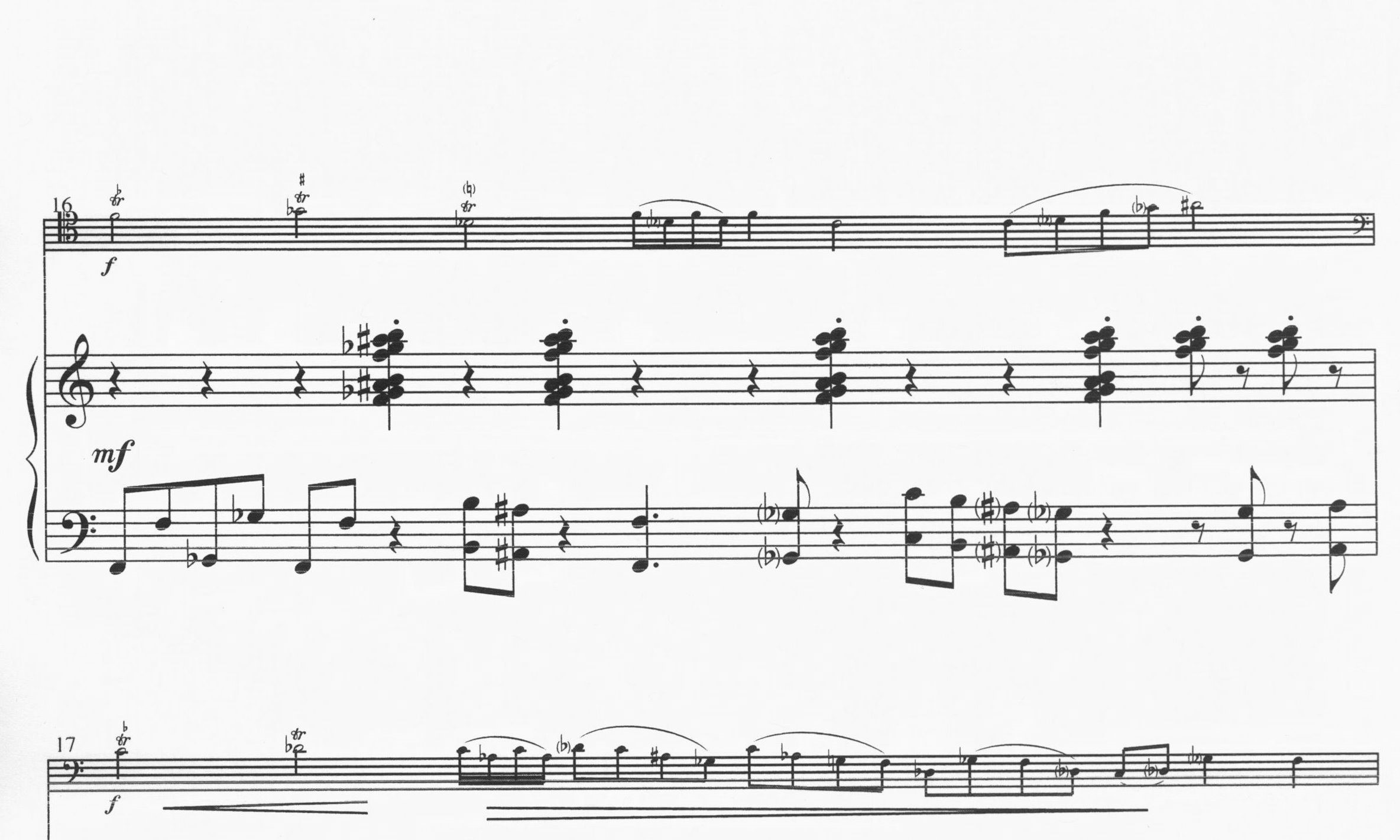 Taqasim Ali Osman Alhaj
Taqasim Ali Osman Alhaj -
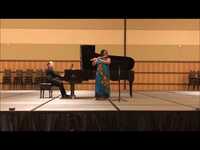 Fanmi Imèn Valerie Coleman
Fanmi Imèn Valerie Coleman -
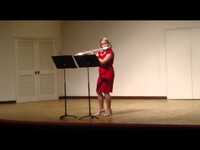 Danza de la Mariposa Valerie Coleman
Danza de la Mariposa Valerie Coleman -
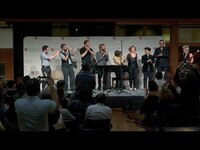 Archi Elastici Felipe Lara
Archi Elastici Felipe Lara -
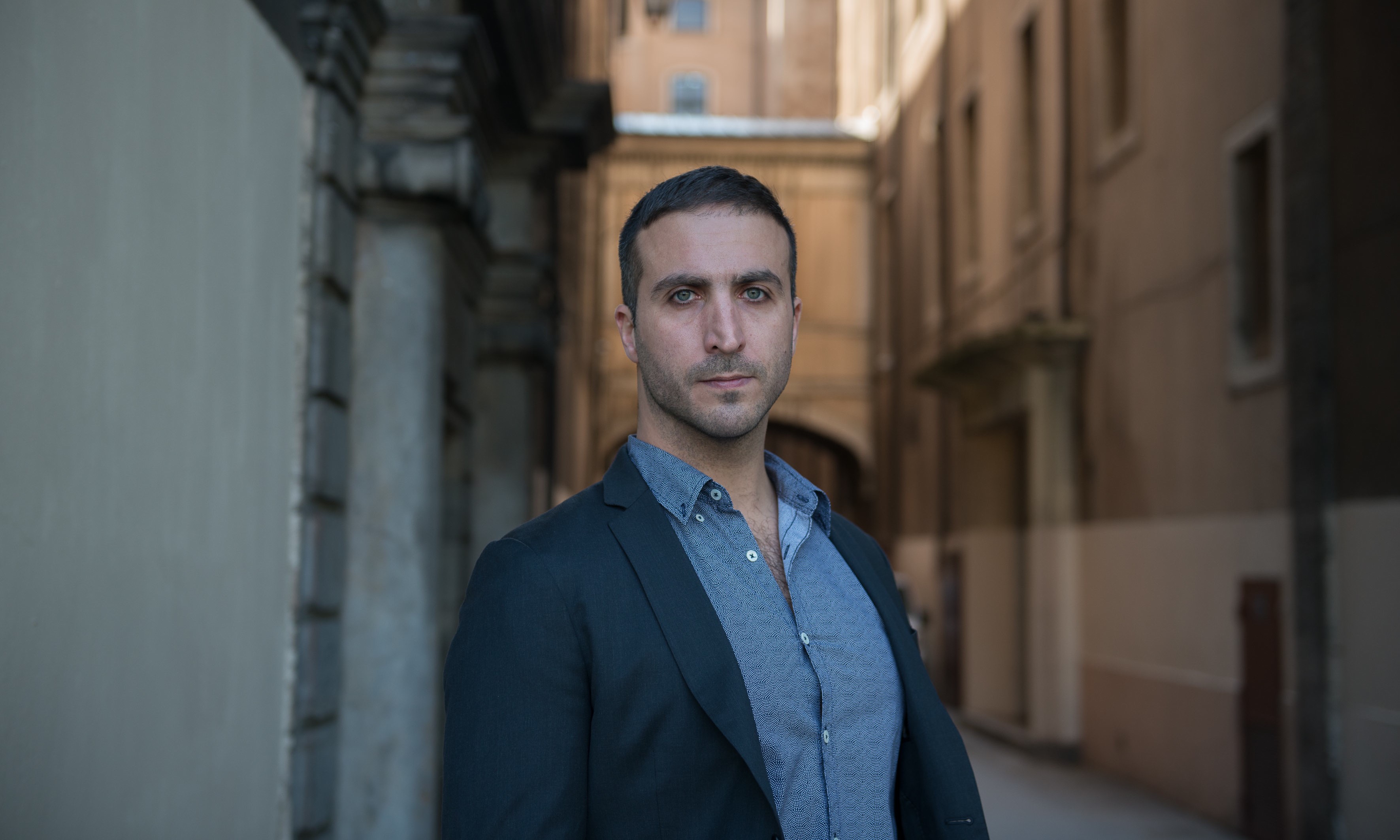 Felipe Lara Praised by the New York Times as "a gifted Brazilian-American modernist" whose works are “brilliantly realized”, “technically formidable, wildly varied”, and possess “voluptuous, elemental lyricism”, Felipe Lara’s work — which includes orchestral, chamber, vocal, film, electroacoustic, and popular music—engages in producing new musical contexts by means of (re)interpreting and translating acoustical and extra-musical properties of familiar source sonorities into project-specific forces. He often aspires to create self-similar relationships between the macro and micro-articulation of the musical experience and highlights the interdependence of acoustic music composition and technology, including the application of electroacoustic paradigms as catalysts for both entire structures and local textures. His music has been recently commissioned by leading soloists, ensembles, and institutions such as the Arditti Quartet (with ExperimentalStudio Freiburg SWR), Brentano Quartet (with Hsin-Yung Huang), Claire Chase, Conrad Tao, Donaueschinger Musiktage, Duo Diorama, Ensemble InterContemporain, Ensemble Modern, Helsinki Philharmonic Orchestra, International Contemporary Ensemble, Los Angeles Philharmonic, Ogni Suono, Rebekah Heller, and São Paulo Symphony Orchestra (Osesp), and also performed by the Amazonas Philharmonic, Asasello Quartet, Ensemble Recherche, David Fulmer, Ex Novo Ensemble, Ilan Volkov, JACK Quartet, Kammerensemble Neue Musik Berlin, Mivos Quartet, Netherlands Radio Chamber Philharmonic Hilversum, Nouvel Ensemble Moderne, Peter Eötvös, Steven Schick, and the Tanglewood Music Center Orchestra. His compositions have been presented by festivals and venues such as Aspen Music Festival, Centre Acanthes (Metz), Acht Brücken Festival (Kölner Philharmonie), Aldeburgh Music Festival (UK), Ars Musica (Belgium), The Art Institute of Chicago, Aspekte Festival (Salzburg), Asphalt Festival (Düsseldorf), Budapest Music Center, Carnegie Hall Neighborhood Concerts (New York), Crested Butte Music Festival (Time Spans), Darmstadt International Courses for New Musik, Donaueschinger Musiktage, Europalia (Belgium), Festival Música Nova (São Paulo), Fromm Players at Harvard, Hakuju Hall (Tokyo), Heidelberger Frühling, Huddersfield Contemporary Music Festival (UK), King’s Place (London), The Kitchen (New York), Luxembourg Philharmonie, Lincoln Center’s Mostly Mozart Festival (New York), New York Philharmonic Biennial, Philharmonie de Paris, Phillips Collection (Washington, DC), Queen Elizabeth Hall (London), Roulette (Brooklyn), Sala Cecília Meireles (Rio de Janeiro), Tanglewood’s Festival for Contemporary Music, Teatro Amazonas (Manaus), Teatro La Fenice (Venice), and Theatro Municipal (São Paulo). While most of his works are conceived for the concert hall, he has recently collaborated with electonic dance music producer Jesse Houg (The Scumfrog) and flutist Claire Chase on a new work to be premiered at Burning Man 2017, written string arrangements for forthcoming album Conversas, Desenhos, Pinturas, by Brazilian popular music artists Milton Nascimento and Ricardo Vogt (also featuring bassist Esperanza Spalding and pianist Leo Genovese), as well as composed the score for the feature film A Fera Na Selva (2017), a Brazilian production and adaptation of Henry James' The Beast in the Jungle, directed by Paulo Betti, Eliane Giardini, Lauro Escorel, with associate producer and Oscar/Golden Globe/BAFTA/Cannes Palm d'Or nominee Fernando Meirelles (City of God, Blindness, The Constant Gardner,2016 Rio Olympics opening ceremony), which was premiered as an official selection in the Festival de 2017 Gramado de Cinema, Brazil. Since 2009, he has been actively engaging with local artists, non-profit organizations, and public school students from the Brazilian Mantiqueira Forrest area on interdiciplinary and collaborative works that focus on the local APAs (Areas of Environmental Protection), with the common theme of sustainability. The exchange culminated in such projects as Desenhando na Mata (2009), where students painted their impression of Lara's work in real time onto large panels; Nos Sons da APA (2011), a DVD recording of a conducted community improvisation with found objects; Entrando no Clima da APA (2012), a collective instalation with audio/video projections; and A APA de São Francisco Xavier em Cena (2013), where his hour-long acousmatic work composed of local sounds APAcusmática was presented on modular set designs created by the students. The projects were presented in the local town hall, Community Pavillion, as well as at Itaú Cultural (São Paulo), and RIO+20, United Nations Conference on Sustainable Development (Rio de Janeiro). The recipient of a 2015 Radcliffe Institute for Advanced Study Fellowship, from Harvard University, he has been awarded an invitational fellowship from the Civitella Ranieri Foundation (2014), composition prize from Funarte (Brazilian Ministry of Culture, 2014), Master Artist Award from the National Association of Latino Arts and Culture (2013), Kanter/Mivos String Quartet Prize (2011), Staubach Prize from IMD (Darmstadt, 2008), Dal Niente International Call-for-Scores, First Prize in Orchestra Composition from the Biennial for Brazilian Contemporary Music (2005), as well as commissions from the Fromm Music Foundation at Harvard University (2011) and the Koussevitzky Music Foundation at Library of Congress (2016). He was also a finalist for the 2014 Rolex Mentor and Protégé Arts Initiative (Geneva, 2014). Recent recordings include Metafagote on Rebekah Heller’s album also titled Metafagote (New York, Tundra Records, 2017), Parábolas na Caverna and Meditation and Calligraphy on Claire Chase’s Density 2036 (Berkeley, Meyer Sound 2017), Tran(slate) on JACK Quartet/Áltavoz composers (New York, New Focus Recordings 2014) and Progetto Prometeo – omaggio a Luigi Nono ed Emilio Vedova by Ex Novo Ensemble (Venice, Rosenfinger 2009), Corde Vocale on Mivos Quartet’s Reappearances (New York, Carrier Records 2013), Corde Vocale by Arditti Quartet and Prisma by Duo Diorama on Quatro Visões Contemporâneas na Música Paulista (Campinas, Gravina 2008), and Sonata de Desintoxicação on Karin Fernandes’ Cria, which was awarded ‘album of the year’ by Brazilian Revista Concerto (São Paulo, Proac 2014). He holds a PhD in Music Composition from New York University (Graduate School of Arts and Science) where he was a Henry M. MacCracken Fellow, a Masters from Tufts University, and a Bachelors degree from Berklee College of Music. His main teachers were Louis Karchin, Tristan Murail, Mario Davidovsky, John McDonald, Vuk Kulenovic, and Alla Elana Cohen. Additionally, he had lessons with Brian Ferneyhough, Chaya Czernowin, David Rakowski, Helmut Lachenmann, Kaija Saariaho, Marco Stroppa, Michel Jarrell, Philippe Leroux, Wolfgang Rihm, and Yan Maresz privately and in international festivals and academies such as the Atlantic Center for the Arts (New Smyrna Beach/FL), Centre Acanthes (Metz/France), Domaine Forget (Saint-Irénée/Canada), Hindemith Institute (Blonay/Switzerland), International Summer Courses for New Music Darmstadt (Darmstadt/Germany), and June in Buffallo (SUNY Buffalo). Having previously taught at New York University’s Faculty of Arts and Science, he has been visiting lecturer at Federal University of Bahia (Salvador, Brazil) and is currently Associate Professor at Berklee College of Music's Boston Conservatory, Faculty Artist at John Hopkins University's Peabody Institute, and Visiting Faculty, Lecturer on Music, at Harvard's Department of Music, where he was awarded a Harvard Excellence in Teaching Award (2017).
Felipe Lara Praised by the New York Times as "a gifted Brazilian-American modernist" whose works are “brilliantly realized”, “technically formidable, wildly varied”, and possess “voluptuous, elemental lyricism”, Felipe Lara’s work — which includes orchestral, chamber, vocal, film, electroacoustic, and popular music—engages in producing new musical contexts by means of (re)interpreting and translating acoustical and extra-musical properties of familiar source sonorities into project-specific forces. He often aspires to create self-similar relationships between the macro and micro-articulation of the musical experience and highlights the interdependence of acoustic music composition and technology, including the application of electroacoustic paradigms as catalysts for both entire structures and local textures. His music has been recently commissioned by leading soloists, ensembles, and institutions such as the Arditti Quartet (with ExperimentalStudio Freiburg SWR), Brentano Quartet (with Hsin-Yung Huang), Claire Chase, Conrad Tao, Donaueschinger Musiktage, Duo Diorama, Ensemble InterContemporain, Ensemble Modern, Helsinki Philharmonic Orchestra, International Contemporary Ensemble, Los Angeles Philharmonic, Ogni Suono, Rebekah Heller, and São Paulo Symphony Orchestra (Osesp), and also performed by the Amazonas Philharmonic, Asasello Quartet, Ensemble Recherche, David Fulmer, Ex Novo Ensemble, Ilan Volkov, JACK Quartet, Kammerensemble Neue Musik Berlin, Mivos Quartet, Netherlands Radio Chamber Philharmonic Hilversum, Nouvel Ensemble Moderne, Peter Eötvös, Steven Schick, and the Tanglewood Music Center Orchestra. His compositions have been presented by festivals and venues such as Aspen Music Festival, Centre Acanthes (Metz), Acht Brücken Festival (Kölner Philharmonie), Aldeburgh Music Festival (UK), Ars Musica (Belgium), The Art Institute of Chicago, Aspekte Festival (Salzburg), Asphalt Festival (Düsseldorf), Budapest Music Center, Carnegie Hall Neighborhood Concerts (New York), Crested Butte Music Festival (Time Spans), Darmstadt International Courses for New Musik, Donaueschinger Musiktage, Europalia (Belgium), Festival Música Nova (São Paulo), Fromm Players at Harvard, Hakuju Hall (Tokyo), Heidelberger Frühling, Huddersfield Contemporary Music Festival (UK), King’s Place (London), The Kitchen (New York), Luxembourg Philharmonie, Lincoln Center’s Mostly Mozart Festival (New York), New York Philharmonic Biennial, Philharmonie de Paris, Phillips Collection (Washington, DC), Queen Elizabeth Hall (London), Roulette (Brooklyn), Sala Cecília Meireles (Rio de Janeiro), Tanglewood’s Festival for Contemporary Music, Teatro Amazonas (Manaus), Teatro La Fenice (Venice), and Theatro Municipal (São Paulo). While most of his works are conceived for the concert hall, he has recently collaborated with electonic dance music producer Jesse Houg (The Scumfrog) and flutist Claire Chase on a new work to be premiered at Burning Man 2017, written string arrangements for forthcoming album Conversas, Desenhos, Pinturas, by Brazilian popular music artists Milton Nascimento and Ricardo Vogt (also featuring bassist Esperanza Spalding and pianist Leo Genovese), as well as composed the score for the feature film A Fera Na Selva (2017), a Brazilian production and adaptation of Henry James' The Beast in the Jungle, directed by Paulo Betti, Eliane Giardini, Lauro Escorel, with associate producer and Oscar/Golden Globe/BAFTA/Cannes Palm d'Or nominee Fernando Meirelles (City of God, Blindness, The Constant Gardner,2016 Rio Olympics opening ceremony), which was premiered as an official selection in the Festival de 2017 Gramado de Cinema, Brazil. Since 2009, he has been actively engaging with local artists, non-profit organizations, and public school students from the Brazilian Mantiqueira Forrest area on interdiciplinary and collaborative works that focus on the local APAs (Areas of Environmental Protection), with the common theme of sustainability. The exchange culminated in such projects as Desenhando na Mata (2009), where students painted their impression of Lara's work in real time onto large panels; Nos Sons da APA (2011), a DVD recording of a conducted community improvisation with found objects; Entrando no Clima da APA (2012), a collective instalation with audio/video projections; and A APA de São Francisco Xavier em Cena (2013), where his hour-long acousmatic work composed of local sounds APAcusmática was presented on modular set designs created by the students. The projects were presented in the local town hall, Community Pavillion, as well as at Itaú Cultural (São Paulo), and RIO+20, United Nations Conference on Sustainable Development (Rio de Janeiro). The recipient of a 2015 Radcliffe Institute for Advanced Study Fellowship, from Harvard University, he has been awarded an invitational fellowship from the Civitella Ranieri Foundation (2014), composition prize from Funarte (Brazilian Ministry of Culture, 2014), Master Artist Award from the National Association of Latino Arts and Culture (2013), Kanter/Mivos String Quartet Prize (2011), Staubach Prize from IMD (Darmstadt, 2008), Dal Niente International Call-for-Scores, First Prize in Orchestra Composition from the Biennial for Brazilian Contemporary Music (2005), as well as commissions from the Fromm Music Foundation at Harvard University (2011) and the Koussevitzky Music Foundation at Library of Congress (2016). He was also a finalist for the 2014 Rolex Mentor and Protégé Arts Initiative (Geneva, 2014). Recent recordings include Metafagote on Rebekah Heller’s album also titled Metafagote (New York, Tundra Records, 2017), Parábolas na Caverna and Meditation and Calligraphy on Claire Chase’s Density 2036 (Berkeley, Meyer Sound 2017), Tran(slate) on JACK Quartet/Áltavoz composers (New York, New Focus Recordings 2014) and Progetto Prometeo – omaggio a Luigi Nono ed Emilio Vedova by Ex Novo Ensemble (Venice, Rosenfinger 2009), Corde Vocale on Mivos Quartet’s Reappearances (New York, Carrier Records 2013), Corde Vocale by Arditti Quartet and Prisma by Duo Diorama on Quatro Visões Contemporâneas na Música Paulista (Campinas, Gravina 2008), and Sonata de Desintoxicação on Karin Fernandes’ Cria, which was awarded ‘album of the year’ by Brazilian Revista Concerto (São Paulo, Proac 2014). He holds a PhD in Music Composition from New York University (Graduate School of Arts and Science) where he was a Henry M. MacCracken Fellow, a Masters from Tufts University, and a Bachelors degree from Berklee College of Music. His main teachers were Louis Karchin, Tristan Murail, Mario Davidovsky, John McDonald, Vuk Kulenovic, and Alla Elana Cohen. Additionally, he had lessons with Brian Ferneyhough, Chaya Czernowin, David Rakowski, Helmut Lachenmann, Kaija Saariaho, Marco Stroppa, Michel Jarrell, Philippe Leroux, Wolfgang Rihm, and Yan Maresz privately and in international festivals and academies such as the Atlantic Center for the Arts (New Smyrna Beach/FL), Centre Acanthes (Metz/France), Domaine Forget (Saint-Irénée/Canada), Hindemith Institute (Blonay/Switzerland), International Summer Courses for New Music Darmstadt (Darmstadt/Germany), and June in Buffallo (SUNY Buffalo). Having previously taught at New York University’s Faculty of Arts and Science, he has been visiting lecturer at Federal University of Bahia (Salvador, Brazil) and is currently Associate Professor at Berklee College of Music's Boston Conservatory, Faculty Artist at John Hopkins University's Peabody Institute, and Visiting Faculty, Lecturer on Music, at Harvard's Department of Music, where he was awarded a Harvard Excellence in Teaching Award (2017). -
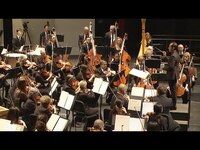 Eating Flowers Hannah Lash
Eating Flowers Hannah Lash -
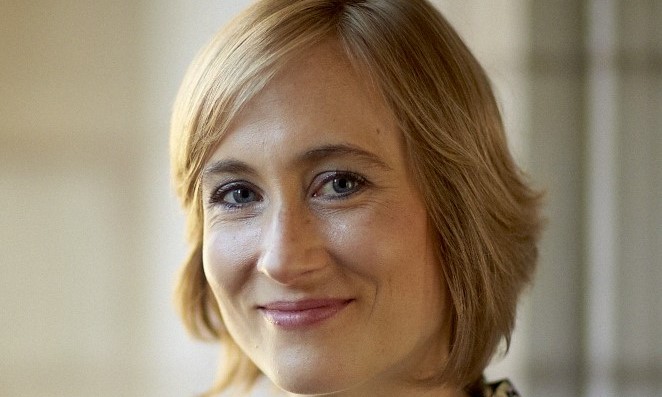 Hannah Lash Ms. Lash’s compact sequence of pale brush strokes, ghostly keening and punchy outbursts was striking and resourceful; you hoped to hear it again… – Steve Smith, The New York Times Hailed by the New York Times as “striking and resourceful…handsomely brooding,” Hannah Lash’s music has been performed at Carnegie Hall, Los Angeles’ Walt Disney Concert Hall, Lincoln Center, the Times Center in Manhattan, the Chicago Art Institute, Tanglewood Music Center, Harvard University, The Aspen Music Festival & School, The Chelsea Art Museum, and on the American Opera Project’s stage in New York City. Commissions include The Fromm Foundation, the Boston Symphony Orchestra, Saint Paul Chamber Orchestra, Carnegie Hall, Chamber Music Northwest, the McKim Fund in the Library of Congress, Cabrillo Festival of Contemporary Music, American Composers Orchestra, Columbia University’s Miller Theatre, The Naumburg Foundation, the Los Angeles Chamber Orchestra, the Arditti Quartet, the Great Lakes Chamber Music Festival, the Colorado Music Festival, and the Aspen Music Festival and School, among many others. Lash has received numerous honors and prizes, including Rappaport Prize for Music Composition (2018), ASCAP Morton Gould Young Composer Award (2011), a Charles Ives Scholarship (2011) and Fellowship (2016) from the American Academy of Arts and Letters, a Fromm Foundation Commission, a Chamber Music America Classical Commissioning Grant, a fellowship from Yaddo Artist Colony, the Naumburg Prize in Composition, the Barnard Rogers Prize in Composition, the Bernard and Rose Sernoffsky Prize in Composition, and numerous academic awards. Her orchestral work Furthermore was selected by the American Composers Orchestra for the 2010 Underwood New Music Readings. Her chamber opera, Blood Rose, was presented by New York City Opera’s VOX in the spring of 2011. New York Times music critic Steve Smith praised Lash’s work for the JACK Quartet, Frayed: “Ms. Lash’s compact sequence of pale brush strokes, ghostly keening and punchy outbursts was striking and resourceful; you hoped to hear it again…” Esteemed music critic Bruce Hodges lauded Lash’s piece Stalk for solo harp as being “appealing…florid, and introspective.” In addition to performances of her music in the USA, Lash’s music is well known internationally. In April of 2008, her string quartet Four Still was performed in Kyev in the Ukraine’s largest international new music festival, “Musical Premieres of the Season,” curated by Carson Cooman. In the summer of 2010, her piece Unclose was premiered by members of Eighth Blackbird at the MusicX festival in Blonay, Switzerland.In 2016, her chamber orchestra work This Ease saw its German premiere and was selected as “audience favorite” in performances by the Philharmonisches Staatsorchester Mainz, conducted by Hermann Bäumer. In 2019, her work was featured at the Presteigne Festival in Wales, and in 2021 she anticipates her work The Nature of Breaking to be performed at the Alba Festival in Alba, Italy. She will also be featured in a Composer Portrait in Mainz, Germany in 2021, where multiple Lash works will be performed over a week. Recent premieres include the multi-movement orchestral work The Voynich Symphony by the New Haven Symphony, Form and Postlude for Chamber Music Northwest, a new Requiem for the Yale Choral Artists, How to Remember Seeds for The Calidore String Quartet, Three Shades Without Angles, for flute, viola and harp, by the Boston Symphony Chamber Players, Two Movements for violin and piano, commissioned by the Library of Congress for Ensemble Intercontemporain, and a new chamber opera, Beowulf, for Guerilla Opera, as well as several new orchestral works: Chaconnes, for the New York Philharmonic’s Biennial, Eating Flowers, for the Cabrillo Festival of Contemporary Music, Nymphs, for the Alabama Symphony Orchestra, and This Ease, for the Los Angeles Chamber Orchestra, as well as two concerti for harp premiered by the American Composers Orchestra (Concerto No. 1 for Harp and Chamber Orchestra) and the Colorado Music Festival (Concerto No. 2 for Harp and Orchestra), both with Lash as soloist. Other recent premieres include God Music Bug Music (2011) with the Minnesota Orchestra, the monodrama Stoned Prince (2013) by loadbang, Subtilior Lamento (2012) with the Da Capo Chamber Players at Carnegie Hall, and Glockenliebe (2012), for three glockenspiels, with Talujon Percussion. Her 2011 orchestral work, Hush, was featured on the Los Angeles Philharmonic’s 2013 Brooklyn Festival. In 2016, Lash was honored with a Composer Portrait Concert at Columbia University’s Miller Theatre, which included newly commissioned works for pianist Lisa Moore (Six Etudes and a Dream) and loadbang (Music for Eight Lungs). In the 2017-2018 season, Lash’s Piano Concerto No. 1 “In Pursuit of Flying” was given its premiere performances by Jeremy Denk and the Saint Paul Chamber Orchestra, and the Atlantic Classical Orchestra debuted a new orchestral work, Facets of Motion. In October of 2019, tenor Paul Appleby gave the premiere of Songs of Imagined Love, a new song cycle commissioned by Carnegie Hall. The 2019-20 season saw a number of exciting premieres, including Hannah Lash’s chamber opera, Desire, which received great acclaim following its premiere at Miller Theatre in October 2019, a Double Concerto for piano and harp performed by the composer and pianist Jeremy Denk with the Naples Philharmonic, and Forestallings, a pairing piece for Beethoven’s Second Symphony for the Indianapolis Symphony Orchestra. Lash obtained her Ph.D in Composition from Harvard University in 2010. She has held teaching positions at Harvard University (Teaching Fellow), at Alfred University (Guest Professor of Composition), and currently serves on the composition faculty at Yale University School of Music.
Hannah Lash Ms. Lash’s compact sequence of pale brush strokes, ghostly keening and punchy outbursts was striking and resourceful; you hoped to hear it again… – Steve Smith, The New York Times Hailed by the New York Times as “striking and resourceful…handsomely brooding,” Hannah Lash’s music has been performed at Carnegie Hall, Los Angeles’ Walt Disney Concert Hall, Lincoln Center, the Times Center in Manhattan, the Chicago Art Institute, Tanglewood Music Center, Harvard University, The Aspen Music Festival & School, The Chelsea Art Museum, and on the American Opera Project’s stage in New York City. Commissions include The Fromm Foundation, the Boston Symphony Orchestra, Saint Paul Chamber Orchestra, Carnegie Hall, Chamber Music Northwest, the McKim Fund in the Library of Congress, Cabrillo Festival of Contemporary Music, American Composers Orchestra, Columbia University’s Miller Theatre, The Naumburg Foundation, the Los Angeles Chamber Orchestra, the Arditti Quartet, the Great Lakes Chamber Music Festival, the Colorado Music Festival, and the Aspen Music Festival and School, among many others. Lash has received numerous honors and prizes, including Rappaport Prize for Music Composition (2018), ASCAP Morton Gould Young Composer Award (2011), a Charles Ives Scholarship (2011) and Fellowship (2016) from the American Academy of Arts and Letters, a Fromm Foundation Commission, a Chamber Music America Classical Commissioning Grant, a fellowship from Yaddo Artist Colony, the Naumburg Prize in Composition, the Barnard Rogers Prize in Composition, the Bernard and Rose Sernoffsky Prize in Composition, and numerous academic awards. Her orchestral work Furthermore was selected by the American Composers Orchestra for the 2010 Underwood New Music Readings. Her chamber opera, Blood Rose, was presented by New York City Opera’s VOX in the spring of 2011. New York Times music critic Steve Smith praised Lash’s work for the JACK Quartet, Frayed: “Ms. Lash’s compact sequence of pale brush strokes, ghostly keening and punchy outbursts was striking and resourceful; you hoped to hear it again…” Esteemed music critic Bruce Hodges lauded Lash’s piece Stalk for solo harp as being “appealing…florid, and introspective.” In addition to performances of her music in the USA, Lash’s music is well known internationally. In April of 2008, her string quartet Four Still was performed in Kyev in the Ukraine’s largest international new music festival, “Musical Premieres of the Season,” curated by Carson Cooman. In the summer of 2010, her piece Unclose was premiered by members of Eighth Blackbird at the MusicX festival in Blonay, Switzerland.In 2016, her chamber orchestra work This Ease saw its German premiere and was selected as “audience favorite” in performances by the Philharmonisches Staatsorchester Mainz, conducted by Hermann Bäumer. In 2019, her work was featured at the Presteigne Festival in Wales, and in 2021 she anticipates her work The Nature of Breaking to be performed at the Alba Festival in Alba, Italy. She will also be featured in a Composer Portrait in Mainz, Germany in 2021, where multiple Lash works will be performed over a week. Recent premieres include the multi-movement orchestral work The Voynich Symphony by the New Haven Symphony, Form and Postlude for Chamber Music Northwest, a new Requiem for the Yale Choral Artists, How to Remember Seeds for The Calidore String Quartet, Three Shades Without Angles, for flute, viola and harp, by the Boston Symphony Chamber Players, Two Movements for violin and piano, commissioned by the Library of Congress for Ensemble Intercontemporain, and a new chamber opera, Beowulf, for Guerilla Opera, as well as several new orchestral works: Chaconnes, for the New York Philharmonic’s Biennial, Eating Flowers, for the Cabrillo Festival of Contemporary Music, Nymphs, for the Alabama Symphony Orchestra, and This Ease, for the Los Angeles Chamber Orchestra, as well as two concerti for harp premiered by the American Composers Orchestra (Concerto No. 1 for Harp and Chamber Orchestra) and the Colorado Music Festival (Concerto No. 2 for Harp and Orchestra), both with Lash as soloist. Other recent premieres include God Music Bug Music (2011) with the Minnesota Orchestra, the monodrama Stoned Prince (2013) by loadbang, Subtilior Lamento (2012) with the Da Capo Chamber Players at Carnegie Hall, and Glockenliebe (2012), for three glockenspiels, with Talujon Percussion. Her 2011 orchestral work, Hush, was featured on the Los Angeles Philharmonic’s 2013 Brooklyn Festival. In 2016, Lash was honored with a Composer Portrait Concert at Columbia University’s Miller Theatre, which included newly commissioned works for pianist Lisa Moore (Six Etudes and a Dream) and loadbang (Music for Eight Lungs). In the 2017-2018 season, Lash’s Piano Concerto No. 1 “In Pursuit of Flying” was given its premiere performances by Jeremy Denk and the Saint Paul Chamber Orchestra, and the Atlantic Classical Orchestra debuted a new orchestral work, Facets of Motion. In October of 2019, tenor Paul Appleby gave the premiere of Songs of Imagined Love, a new song cycle commissioned by Carnegie Hall. The 2019-20 season saw a number of exciting premieres, including Hannah Lash’s chamber opera, Desire, which received great acclaim following its premiere at Miller Theatre in October 2019, a Double Concerto for piano and harp performed by the composer and pianist Jeremy Denk with the Naples Philharmonic, and Forestallings, a pairing piece for Beethoven’s Second Symphony for the Indianapolis Symphony Orchestra. Lash obtained her Ph.D in Composition from Harvard University in 2010. She has held teaching positions at Harvard University (Teaching Fellow), at Alfred University (Guest Professor of Composition), and currently serves on the composition faculty at Yale University School of Music. -
 Kolokol Nina C. Young
Kolokol Nina C. Young -
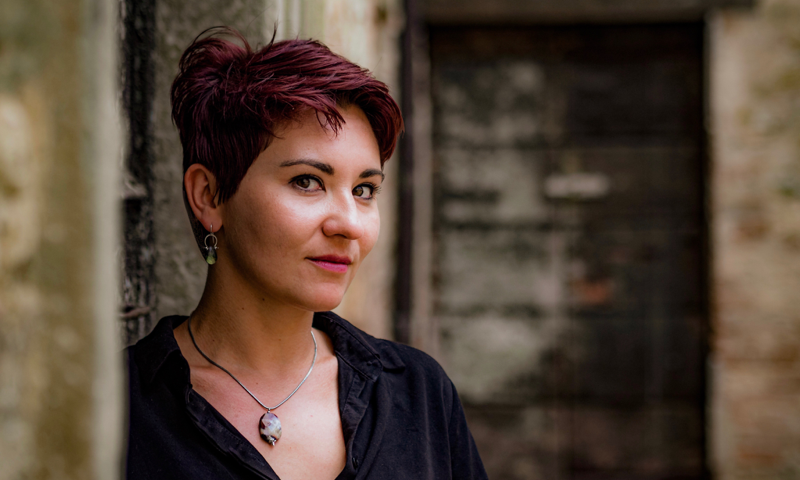 Nina C. Young The music of composer Nina C. Young (b.1984) is characterized by an acute sensitivity to tone color, manifested in aural images of vibrant, arresting immediacy. Her musical voice mixes elements of the classical canon, modernism, spectralism, American experimentalism, minimalism, electronic music, and popular idioms. Her projects, ranging from concert pieces to interactive installations, strive to create unique sonic environments that explore aural architectures, resonance, and ephemera. Young’s works have been presented by Carnegie Hall, the National Gallery, the Whitney Museum, LA Phil’s Next on Grand, and the St. Paul Chamber Orchestra’s Liquid Music Series. Her music has garnered international acclaim through performances by the American Composers Orchestra, the Milwaukee Symphony, the Minnesota Orchestra, the New York Philharmonic, the Philadelphia Orchestra, the Phoenix Symphony, Le Nouvel Ensemble Moderne, the Aizuri Quartet, Either/Or, the JACK Quartet, wild Up, and Yarn/Wire. Winner of the 2015-16 Rome Prize at the American Academy in Rome, Young has also received a 2021 Guggenheim Fellowship, a Koussevitzky Commission, a Civitella Ranieri Foundation Fellowship, a Charles Ives Scholarship from the American Academy of Arts and Letters, the Salvatore Martirano Memorial Award, Aspen Music Festival's Jacob Druckman Prize, and honors from BMI, IAWM, and ASCAP/SEAMUS. In 2019 Carnegie Hall commissioned Out of Whose Womb Came the Ice with the American Composers Orchestra: for baritone, orchestra, electronics, and generative video, commenting on the ill-fated Ernest Shackleton Trans-Antarctic Expedition 1914-17. Other recent projects include Tread Softly that opened the NY Philharmonic’s Project 19, a violin concerto for Jennifer Koh from the Philadelphia Orchestra, and The Glow that Illuminates, The Glare that Obscures for the American Brass Quintet alongside an immersive audio-visual installation version commissioned by EMPAC showcasing a vertical orientation of their wavefield synthesis audio system. A graduate of McGill University and MIT, Young completed her DMA at Columbia University. She is an Assistant Professor of Composition at USC's Thornton School of Music. She serves as Co-Artistic Director of New York’s Ensemble Échappé. Her music is published by Peermusic Classical.
Nina C. Young The music of composer Nina C. Young (b.1984) is characterized by an acute sensitivity to tone color, manifested in aural images of vibrant, arresting immediacy. Her musical voice mixes elements of the classical canon, modernism, spectralism, American experimentalism, minimalism, electronic music, and popular idioms. Her projects, ranging from concert pieces to interactive installations, strive to create unique sonic environments that explore aural architectures, resonance, and ephemera. Young’s works have been presented by Carnegie Hall, the National Gallery, the Whitney Museum, LA Phil’s Next on Grand, and the St. Paul Chamber Orchestra’s Liquid Music Series. Her music has garnered international acclaim through performances by the American Composers Orchestra, the Milwaukee Symphony, the Minnesota Orchestra, the New York Philharmonic, the Philadelphia Orchestra, the Phoenix Symphony, Le Nouvel Ensemble Moderne, the Aizuri Quartet, Either/Or, the JACK Quartet, wild Up, and Yarn/Wire. Winner of the 2015-16 Rome Prize at the American Academy in Rome, Young has also received a 2021 Guggenheim Fellowship, a Koussevitzky Commission, a Civitella Ranieri Foundation Fellowship, a Charles Ives Scholarship from the American Academy of Arts and Letters, the Salvatore Martirano Memorial Award, Aspen Music Festival's Jacob Druckman Prize, and honors from BMI, IAWM, and ASCAP/SEAMUS. In 2019 Carnegie Hall commissioned Out of Whose Womb Came the Ice with the American Composers Orchestra: for baritone, orchestra, electronics, and generative video, commenting on the ill-fated Ernest Shackleton Trans-Antarctic Expedition 1914-17. Other recent projects include Tread Softly that opened the NY Philharmonic’s Project 19, a violin concerto for Jennifer Koh from the Philadelphia Orchestra, and The Glow that Illuminates, The Glare that Obscures for the American Brass Quintet alongside an immersive audio-visual installation version commissioned by EMPAC showcasing a vertical orientation of their wavefield synthesis audio system. A graduate of McGill University and MIT, Young completed her DMA at Columbia University. She is an Assistant Professor of Composition at USC's Thornton School of Music. She serves as Co-Artistic Director of New York’s Ensemble Échappé. Her music is published by Peermusic Classical. -
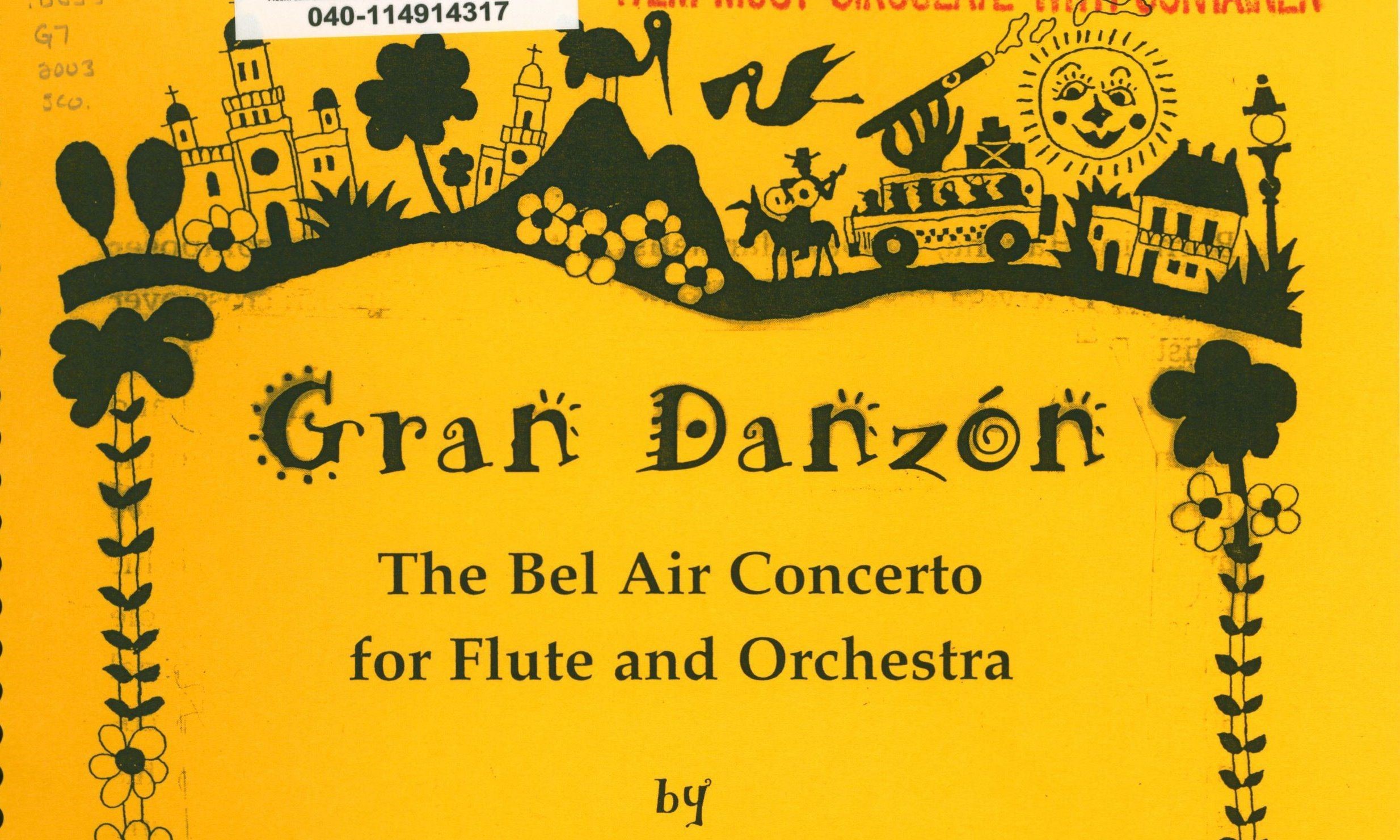 Gran Danzón Paquito D'Rivera
Gran Danzón Paquito D'Rivera -
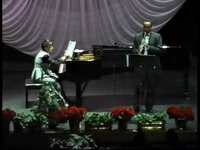 Egyptian Ma-Wal Ali Osman Alhaj
Egyptian Ma-Wal Ali Osman Alhaj -
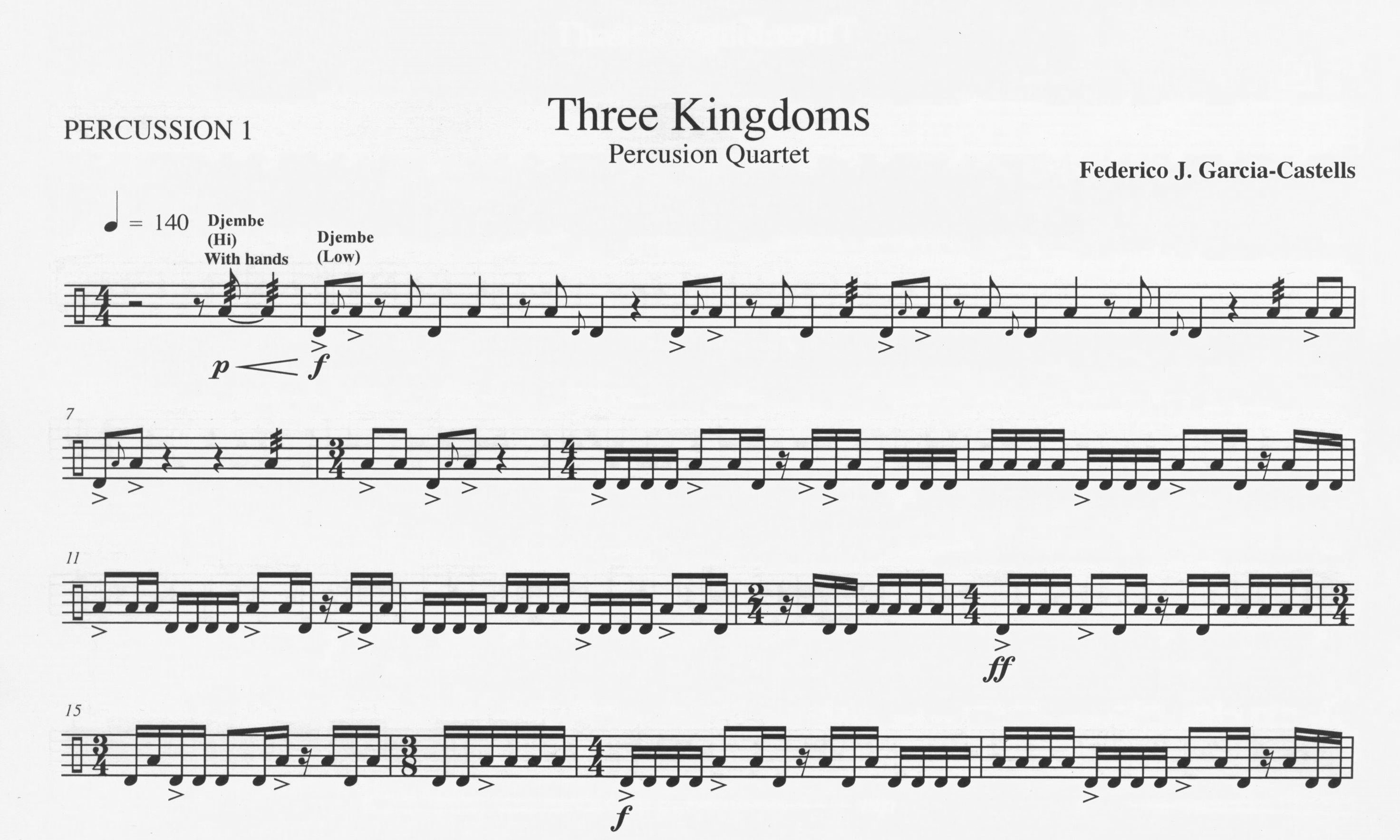 Three Kingdoms Federico García-Castells
Three Kingdoms Federico García-Castells -
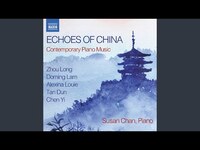 Mongolian Folk-Tune Variations Zhou Long
Mongolian Folk-Tune Variations Zhou Long -
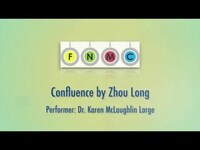 Confluence Zhou Long
Confluence Zhou Long -
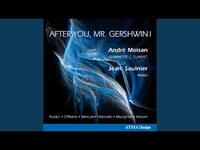 The Cape Cod Files Paquito D'Rivera
The Cape Cod Files Paquito D'Rivera -
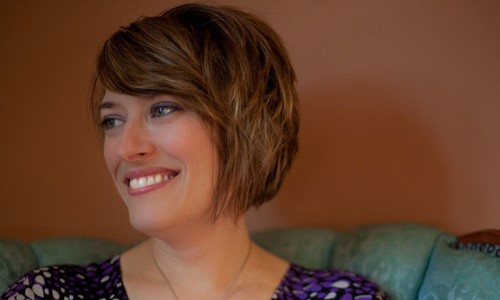 Elainie Lillios Acclaimed as one of the “contemporary masters of the medium” by MIT Press’s Computer Music Journal, electroacoustic composer Elainie Lillios creates works that reflect her fascination with listening, sound, space, time, immersion and anecdote. Her compositions include stereo, multi channel, and Ambisonic fixed media works, instrument(s) with live interactive electronics, collaborative experimental audio/visual animations, and installations. Her work has been recognized internationally and nationally through awards including a 2018 Fromm Foundation Commission, 2016 Barlow Endowment Commission, 2013-14 Fulbright Award, First Prize in the Concours Internationale de Bourges, Areon Flutes International Composition Competition, Electroacoustic Piano International Competition, and Medea Electronique “Saxotronics” Competition, and Second Prize in the Destellos International Electroacoustic Competition. She has also received awards from the Concurso Internacional de Música Electroacústica de São Paulo, Concorso Internazionale Russolo, Pierre Schaeffer Competition, and La Muse en Circuit. She has received grants/commissions from INA/GRM, Rèseaux, International Computer Music Association, La Muse en Circuit, NAISA, ASCAP/SEAMUS, LSU’s Center for Computation and Technology, Sonic Arts Research Centre, Ohio Arts Council, and National Foundation for the Advancement of the Arts. She has been a special guest at the Groupe de Recherche Musicales, Rien à Voir, festival l’espace du son, June in Buffalo, and at other locations in the United States and abroad. Reviews of Elainie’s debut solo electroacoustic compact disc Entre Espaces (Empreintes DIGITALes) praise her work for being “… elegantly assembled, and immersive enough to stand the test of deep listening” and as “…a journey not to be missed.” Her fixed and instrumental works also appear on Centaur, MSR Classics, StudioPANaroma, La Muse en Circuit, New Adventures in Sound Art, SEAMUS, Irritable Hedgehog and Leonardo Music Journal. Elainie serves a Director of Composition Activities for the SPLICE institute (splice music.org) and holds the rank of Professor of Creative Arts Excellence at Bowling Green State University in Ohio.
Elainie Lillios Acclaimed as one of the “contemporary masters of the medium” by MIT Press’s Computer Music Journal, electroacoustic composer Elainie Lillios creates works that reflect her fascination with listening, sound, space, time, immersion and anecdote. Her compositions include stereo, multi channel, and Ambisonic fixed media works, instrument(s) with live interactive electronics, collaborative experimental audio/visual animations, and installations. Her work has been recognized internationally and nationally through awards including a 2018 Fromm Foundation Commission, 2016 Barlow Endowment Commission, 2013-14 Fulbright Award, First Prize in the Concours Internationale de Bourges, Areon Flutes International Composition Competition, Electroacoustic Piano International Competition, and Medea Electronique “Saxotronics” Competition, and Second Prize in the Destellos International Electroacoustic Competition. She has also received awards from the Concurso Internacional de Música Electroacústica de São Paulo, Concorso Internazionale Russolo, Pierre Schaeffer Competition, and La Muse en Circuit. She has received grants/commissions from INA/GRM, Rèseaux, International Computer Music Association, La Muse en Circuit, NAISA, ASCAP/SEAMUS, LSU’s Center for Computation and Technology, Sonic Arts Research Centre, Ohio Arts Council, and National Foundation for the Advancement of the Arts. She has been a special guest at the Groupe de Recherche Musicales, Rien à Voir, festival l’espace du son, June in Buffalo, and at other locations in the United States and abroad. Reviews of Elainie’s debut solo electroacoustic compact disc Entre Espaces (Empreintes DIGITALes) praise her work for being “… elegantly assembled, and immersive enough to stand the test of deep listening” and as “…a journey not to be missed.” Her fixed and instrumental works also appear on Centaur, MSR Classics, StudioPANaroma, La Muse en Circuit, New Adventures in Sound Art, SEAMUS, Irritable Hedgehog and Leonardo Music Journal. Elainie serves a Director of Composition Activities for the SPLICE institute (splice music.org) and holds the rank of Professor of Creative Arts Excellence at Bowling Green State University in Ohio. -
 Symphony No. 4: In the Shadow of No Towers Mohammed Fairouz
Symphony No. 4: In the Shadow of No Towers Mohammed Fairouz
